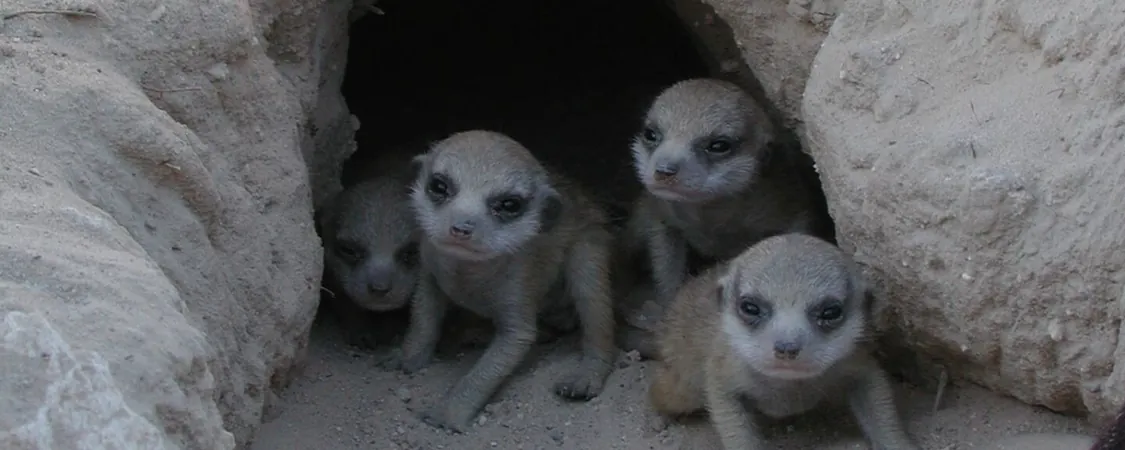
The Hidden Costs of Power: How Meerkat Matriarchs' Dominance Affects Their Pups' Health
2024-12-09
Author: John Tan
In the animal kingdom, dominance is often associated with male aggression, from silverback gorillas thumping their chests to corporate executives competing in high-stakes boardrooms. However, a fascinating new study reveals that in meerkat societies, it's the females that exhibit fierce competition and dominance.
Introduction
Meerkats, small mammals belonging to the mongoose family, primarily inhabit the dry savannahs of southern Africa. In most meerkat groups, known as mobs, a dominant female, often referred to as the matriarch, leads with an iron paw. She fiercely protects her position through a range of assertive behaviors—growling, biting, and pushing—ensuring that the other members of her group assist in raising her young.
Research Findings
Recent groundbreaking research from Duke University has highlighted the potential downsides of this dominance. Led by evolutionary biology professor Christine Drea, the study reveals that the matriarch's high testosterone levels—sometimes reaching double that of her male counterparts, especially during pregnancy—can negatively impact the health of her pups.
Published in the journal *Ecology and Evolution*, the study assessed a population of 195 meerkats in the Kuruman River Reserve, located in the Kalahari Desert of South Africa. By analyzing the feces of these meerkats, researchers sought signs of parasites and unhealthy gut flora in the pups of dominant females compared to those of subordinate females. Alarmingly, findings showed that pups born to dominant mothers possessed a higher burden of gut parasites.
Maternal Testosterone Effects
To better understand the influence of maternal testosterone, the researchers administered medication to a group of dominant meerkat mothers during their third trimester to mitigate the hormone's effects. The results were astonishing: pups from these treated females exhibited fewer parasites and enhanced immune function, demonstrating stronger blood test results against infections. Moreover, they showed a significantly higher survival rate beyond their first year of life.
"This study is the first to provide evidence that elevated prenatal testosterone exposure can weaken immune function in mammals," Drea stated. The negative correlation between testosterone levels and health appeared to be most significant in juvenile meerkats, with no noticeable impact by the time they reached adulthood.
Implications and Conclusion
Smyth-Kabay, a co-author of the study, emphasized the broader implications of this research, emphasizing that understanding how wild animals cope with infections in their natural habitats sheds light on the complex interplay of social structures, hormonal levels, and environmental stresses affecting health.
Ultimately, the study suggests that the price of power in meerkat societies may be higher than anticipated—highlighting the hidden costs of dominance and the delicate balance of nature. These findings not only enrich our understanding of meerkat behavior but also open up avenues for exploring how social dynamics shape health outcomes in various species. Who knew being the queen of the savannah could come with such heavy consequences?




 Brasil (PT)
Brasil (PT)
 Canada (EN)
Canada (EN)
 Chile (ES)
Chile (ES)
 España (ES)
España (ES)
 France (FR)
France (FR)
 Hong Kong (EN)
Hong Kong (EN)
 Italia (IT)
Italia (IT)
 日本 (JA)
日本 (JA)
 Magyarország (HU)
Magyarország (HU)
 Norge (NO)
Norge (NO)
 Polska (PL)
Polska (PL)
 Schweiz (DE)
Schweiz (DE)
 Singapore (EN)
Singapore (EN)
 Sverige (SV)
Sverige (SV)
 Suomi (FI)
Suomi (FI)
 Türkiye (TR)
Türkiye (TR)